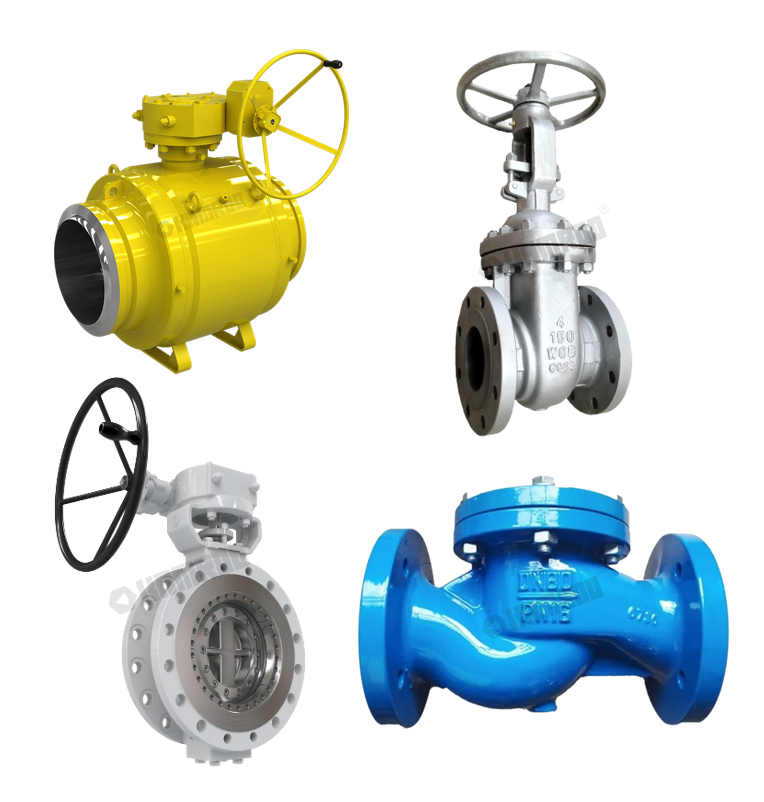Choosing the right valve manufacturer is a critical step for ensuring safety, reliability, and performance in industrial systems. Whether you're working in oil and gas, water treatment, chemical processing, or power generation, selecting a manufacturer that offers durable valve designs and quality assurance can greatly influence operational efficiency. This guide will help you understand how to identify the best industrial valve manufacturers and what to consider when making your decision.
Before selecting a manufacturer, you must define the applications including pressure range, temperature, flow rate, and type of fluid. Valves must meet the specific needs of your system, especially when dealing with high pressure or corrosive environments. Different industries require different valve specifications—for instance, chemical plants may need corrosion-resistant materials, while oil and gas systems demand valves that can handle extreme pressures and temperatures.
A reputable valve manufacturer should offer a wide range of products to meet diverse operational requirements. Common valve types include:
By offering all these options, a manufacturer demonstrates technical capability and versatility in valve designs.

High-quality valve manufacturers adhere to international standards such as API, ISO, and ASME. Certification ensures that each gate valve, check valve, ball valve, or butterfly valve is tested for durability, sealing performance, and pressure resistance. You should also review the manufacturer’s material traceability, testing procedures, and documentation for compliance with your industry’s safety requirements.
Modern industries demand valves with innovative valve designs and high-performance materials. Look for manufacturers who invest in R&D and offer specialized solutions such as full port valves for minimal flow restriction or customized sealing options for unique applications. The use of stainless steel, brass, or high-alloy materials is essential for high pressure and corrosive systems.
Reliable after-sales service is another key factor when choosing a valve manufacturer. Technical support, repair services, spare part availability, and customization capabilities reflect a company’s commitment to long-term customer satisfaction. A good manufacturer should also provide guidance on maintenance schedules and valve selection to maximize system lifespan.
While cost is always a consideration, the cheapest option is not always the best. Focus on overall value — a balance between cost, quality, and performance. You should also assess delivery lead times, as delays in obtaining ball valves, gate valves, or butterfly valves can disrupt operations.
Q1: What is a full port valve and why is it important?
A full port valve has an internal diameter equal to the pipeline, minimizing flow resistance and pressure drop. It’s especially useful in systems requiring high flow efficiency.
Q2: What are the most common types of valves used in industry?
The main types include ball valves, gate valves, check valves, and butterfly valves, each suitable for specific applications depending on flow control, pressure, and fluid type.
Q3: How can I identify a high-quality valve manufacturer?
Look for manufacturers with global certifications (API, ISO), advanced testing equipment, strong R&D capabilities, and positive client reviews.
Q4: Which valve is best for high pressure systems?
Ball valves and gate valves are generally preferred for high pressure applications due to their robust design and tight sealing capabilities.
Q5: Why should I choose a manufacturer offering a wide range of valves?
A wide range of products ensures flexibility in selecting the right valve designs for different operating conditions, helping you reduce downtime and maintenance costs.
Selecting the right industrial valve manufacturer requires a balance of technical expertise, product quality, and customer support. Focus on companies that provide a wide range of valve designs—including ball valves, gate valves, check valves, and butterfly valves—that meet your system’s specific requirements. A trusted manufacturer not only ensures safety and performance but also helps optimize your operations for long-term success.